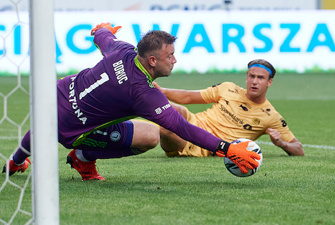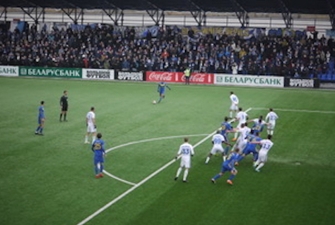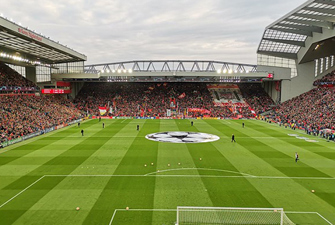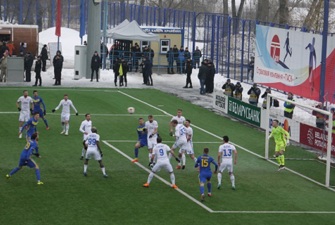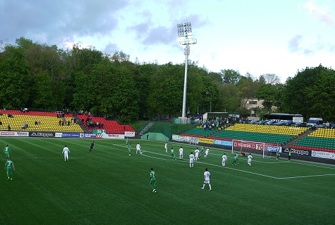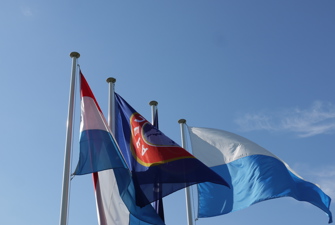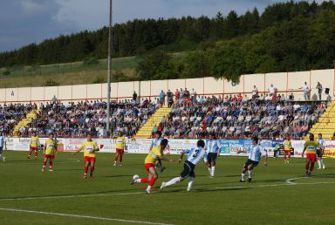UCL Diversity Index 2022/23: Qualification to group stages is impossible for new clubs
New clubs can only dream of qualifying for the group stages of UEFA's Champions League. The set-up of the tournament continues to be heavily biased toward bigger clubs and leagues, Steve Menary shows in the latest edition of Play the Game's UCL Diversity Index.
According to Play the Game's latest Champions League Diversity Index, qualification is becoming impossible for new clubs that want to break into UEFA’s increasingly closed premier competition.
A handful of new clubs continue to make their debut in the world’s richest club competition each year, but progressing to the lucrative group stages has become impossible without intervention by UEFA that favours bigger clubs and leagues.
In 2022/23, seven clubs qualified for the UCL for the first time, but only Eintracht Frankfurt made the group phase. And that was because the German club won UEFA’s Europa League last season, which guarantees the winners a place in the UCL group stages.
Over the past 11 years, eight UCL debutants have reached the group stages but five including Eintracht Frankfurt were gifted places courtesy of UEFA rules to favour stronger leagues and placate bigger clubs. The last team to qualify for the group stages without UEFA support was the Russian club Rostov in 2016/17.
26 out of 32 clubs do not go through qualification
This season, 2,032 million euros will be allocated to clubs playing in the UCL and 500 million euros will go to clubs in the group solely for appearing in the group stages. Each of the 32 teams will each get a basic payment of 15.6 million euros – before performance bonuses and TV money - but 26 of those clubs are allocated spots by UEFA without needing to go through a qualification round.
Another 600.6 million euros will also be paid out this season to clubs in the UCL based on their performances over the 10 previous years. This will again reward the bigger clubs whose larger budgets have invariably bought success and are already playing in the UCL group stages.
Of the dozen clubs that reached the play-off round, only two – Benfica and Red Star Belgrade – had won the UCL or its predecessor, the Champions League, and the most recent success was the Serbian club’s win in 1990/91, which is well outside of the period of the last 10 years that now guarantees more money.
These payments were aimed at appeasing Europe’s largest clubs, which had threatened to break away into a European Super League (ESL) in April 2021. Of the 12 founding clubs behind the ESL concept, 10 went straight into the group stages of this season’s UCL.
The ESL would have involved a total of 20 clubs and was roundly criticised by fans, politicians and many others within the game for creating what would have virtually been a closed shop aimed at benefitting the continent’s richest clubs.
Play the Game’s diversity index shows that is already occurring with restricted opportunities for clubs outside the elite and little chance of progressing to the group stages, where the real riches from TV money and UEFA lays.
How the diversity index works
Play the Game's index has been measuring diversity in the UCL since 2009 and works by dividing the total UCL appearances for each nation by the number of different clubs that took up those entries to give a national figure.
The first survey in 2009 covered the previous 15 years, and the average figure for the whole index was 3.44. In the most recent survey, which covers 29 seasons of the competition up to 2022/23, the average index figure is 5.36, which shows that the competition is increasingly dominated by the same clubs.
Table 1: Play the Game Champions League Diversity Index 2021/22 (higher index score = less diverse)
| Country | Total apps | Clubs | Index |
| Greece | 54 | 4 | 13,50 |
| Ukraine | 52 | 4 | 13,00 |
| Croatia | 31 | 3 | 10,33 |
| Scotland | 41 | 4 | 10,25 |
| England | 102 | 10 | 10,20 |
| Portugal | 67 | 7 | 9,57 |
| Spain | 107 | 12 | 8,92 |
| Serbia | 26 | 3 | 8,67 |
| Holland | 59 | 7 | 8,43 |
| Italy | 98 | 12 | 8,17 |
| Turkey | 54 | 7 | 7,71 |
| Belgium | 50 | 7 | 7,14 |
| Luxembourg | 27 | 4 | 6,75 |
| France | 79 | 12 | 6,58 |
| Czech Republic | 46 | 7 | 6,57 |
| Germany | 94 | 15 | 6,27 |
| Russia | 55 | 9 | 6,11 |
| Austria | 41 | 7 | 5,86 |
| Cyprus | 29 | 5 | 5,80 |
| Bulgaria | 26 | 5 | 5,20 |
| Moldova | 26 | 5 | 5,20 |
| Lithuania | 26 | 5 | 5,20 |
| N Ireland | 26 | 5 | 5,20 |
| Israel | 30 | 6 | 5,00 |
| Switzerland | 41 | 9 | 4,56 |
| Gibraltar | 9 | 2 | 4,50 |
| Denmark | 35 | 8 | 4,38 |
| Malta | 26 | 6 | 4,33 |
| Wales | 26 | 6 | 4,33 |
| Estonia | 26 | 6 | 4,33 |
| Poland | 29 | 7 | 4,14 |
| Norway | 32 | 8 | 4,00 |
| Slovenia | 26 | 7 | 3,71 |
| Latvia | 26 | 7 | 3,71 |
| Belarus | 26 | 7 | 3,71 |
| Albania | 26 | 7 | 3,71 |
| Faroes | 26 | 7 | 3,71 |
| Romania | 37 | 10 | 3,70 |
| Azerbaijan | 24 | 7 | 3,43 |
| Slovakia | 26 | 8 | 3,25 |
| Iceland | 26 | 8 | 3,25 |
| Ireland | 26 | 8 | 3,25 |
| Armenia | 26 | 8 | 3,25 |
| San Marino | 16 | 5 | 3,20 |
| Andorra | 16 | 5 | 3,20 |
| Kazakstan | 21 | 7 | 3,00 |
| Sweden | 29 | 10 | 2,90 |
| Hungary | 29 | 10 | 2,90 |
| Finland | 26 | 9 | 2,89 |
| North Macedonia | 26 | 9 | 2,89 |
| Bosnia-Herz. | 23 | 8 | 2,88 |
| Montenegro | 16 | 6 | 2,67 |
| Georgia | 26 | 10 | 2,60 |
| Kosovo | 6 | 5 | 1,20 |
In 25 of the 53 countries to enter this year, the league title was won by the same club as the previous season, and 24 countries were represented by exactly the same club or clubs as in 2021/22. In the 2021/22 UCL, 25 of the then 54 countries to take part were represented by the same clubs.
UEFA has 55 member associations but Liechtenstein has no league so cannot provide a champion. Until last season, Russia had been awarded 55 places in the UCL since 1994/95 and nine different clubs taking up these places. This season, Russian clubs were excluded by UEFA after their country’s invasion of Ukraine.
Clubs from Ukraine are taking part as the season there has resumed behind closed doors, but the country is among the least diverse in Europe. Just four Ukrainian clubs have taken part since the structural changes to the old Champions League in 1994/95, which ushered in the modern UCL. The last time that a Ukrainian club other than Shaktar Donetsk or Dinamo Kyiv took part was Dnipro Dnipropetrovsk’s sole appearance in 2014/15.
The least diverse country remains Greece, where only four clubs have taken up the 54 places on offer, while Dinamo Zagreb has been Croatia’s sole representative since 2006/07.
The UCL is dominated by five big leagues
The country with the largest number of different clubs taking part in the UCL is Germany, where 15 different clubs have taken up the 95 UCL spaces on offer since 1994/95. While there has been a greater number of different clubs from Germany in the UCL, Bayern Munich have only missed out on three occasions in the last 29 seasons and have won their national league for 10 seasons in a row.
During the same period, 10 different clubs have taken up the 102 places offered to the English Premier League. In the last fifteen seasons, Leicester - in 2016/17 – was the only club to appear outside of the big six of Arsenal, Chelsea, Liverpool, Manchester City, Manchester United and Spurs, which all get a greater share of domestic TV revenue.
Table 2: German clubs in UCL since 1994/95
| Club | Appearances |
| Bayern Munich | 26 |
| Borussia Dortmund | 18 |
| Bayer Leverkusen | 13 |
| Schalke | 8 |
| Werder Bremen | 6 |
| RB Leipzig | 5 |
| Borussia Monchengladbach | 4 |
| Stuttgart | 3 |
| Wolfsburg | 3 |
| Hamburg | 2 |
| Hoffenheim | 2 |
| 1860 Munich | 1 |
| Eintracht Frankfurt | 1 |
| Hertha Berlin | 1 |
| Kaiserslauten | 1 |
Overall, 1,999 spaces have been offered by UEFA in the UCL since 1994/95, and 480 have gone to clubs from the big five leagues of England, Spain, Germany, Italy, and France. Those five leagues are also amongst the top 15 leagues with the least diverse range of clubs taking part.
UEFA’s coefficient that rewards recent success looks likely to sustain that trend.
UEFA coefficient boost plays no important role
UEFA’s rankings, known as coefficients, can favour middle ranking leagues and provide entry to the UCL qualifiers but further progress is not possible.
Cyprus was awarded two UCL qualifying slots in 2022/23 due to strong recent showings by Cypriot clubs in other junior UEFA competitions. Last season’s Cypriot league runners-up AEK Larnaca made their UCL debut but were knocked out immediately in the second qualifying round.
Another debutant, Union Saint-Gilloise of Belgium went straight into the third qualifying round courtesy of Belgian clubs' strong coefficient and was also knocked out straight away.
The other clubs making their debut were from smaller European leagues and all fell in the early stages of qualifying, such as Georgia’s Dinamo Batumi and Riga Football School (RFS) from Latvia.
The other two clubs making their debut in 2022/23 both had some experience with the competition, but in different guises.
Icelandic champions Vikingur appeared in the old European Cup twice in the 1980s and in the qualifiers for the Champions League in 1992/93.
After winning their first North Macedonian title in 2021/22 Shkupi made their UCL debut this season. Shkupi is, however, not entirely new to the competition as the club was formed in 2012 from a merger between FC Albara and Sloga, which had entered the UCL qualifiers for three successive seasons up to 2001/02.
Table 3: Number of new Champions League entrants
| Season | Number |
| 2022/23 | 7 |
| 2021/22 | 4 |
| 2020/21 | 6 |
| 2019/20 | 8 |
| 2018/19 | 3 |
| 2017/18 | 12 |
| 2016/17 | 10 |
| 2015/16 | 7 |
| 2014/15 | 5 |
| 2013/14 | 9 |
| 2012/13 | 11 |
In 2024/25, the UCL’s group stages will expand to include 36 clubs. Two of the four extra places will be awarded based on the performance of a country's clubs in Europe in the previous season.
At the time this latest change was announced in May 2022, England’s Premier League and the Dutch Eredivisie would have benefited from an extra place.
Another place would go to the third-placed league club in the country standing fifth in UEFA’s rankings with the final extra place going to a club that can qualify via the protected Champions Path. The chances of a new club emerging from that path seems increasingly unlikely.

